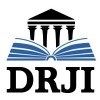Research Article
Issue Reviewers



1981 yılında Konya’da doğdu. 1999 yılında Konya İmam Hatip Lisesinden, 2006 yılında Selçuk Üniversitesi Türk Dili ve Edebiyatı bölümünden mezun oldu. MEB’de Türk dili ve edebiyatı öğretmeni olarak görev aldı. Bir şiir mecmuası ile uzman, Hazînetü’l-Ebrâr ile doktor oldu. Selçuk Üniversitesinde öğretim üyesi olarak çalışmaktadır.
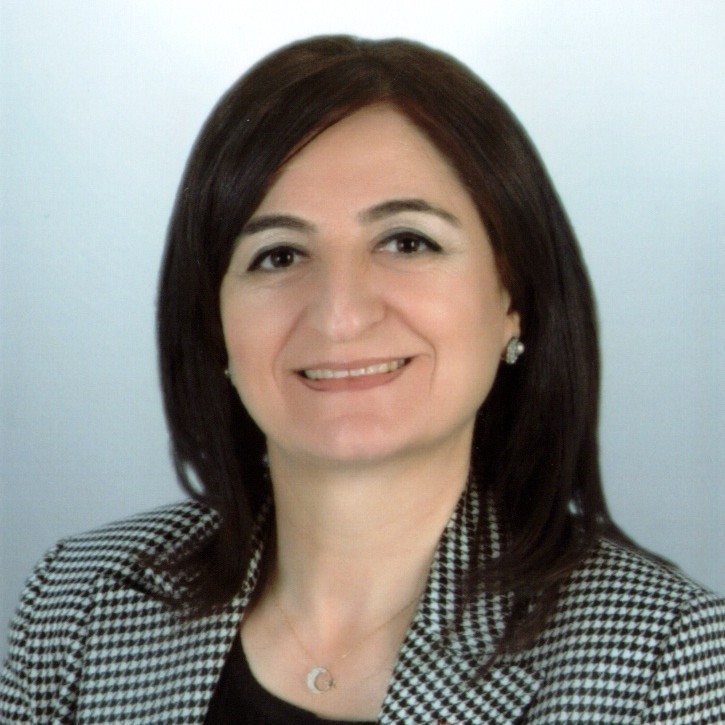
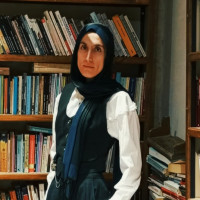
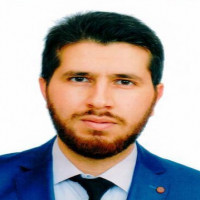

1986: Lisans
1988: Yüksek Lisans
1995: Doktora
2007: Doç.Dr.
2015: Prof.Dr.
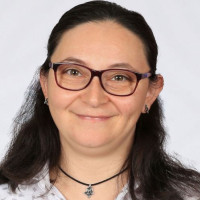
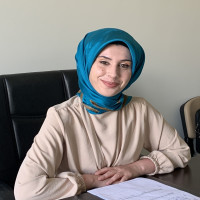
İlköğretim ve liseyi Konya Ereğli Atatürk Lisesinde tamamladı. Konya Selçuk Üniversitesi Türk Dili ve Edebiyatı bölümü lisans programını birincilikle, Harita Mühendisliğini ise önce çift ana dal daha sonra yan dal programı kapsamında tamamladı. 2014-2017 yılları arasında Atatürk Üniversitesi Türkiyat Araştırmaları Enstitüsü Türk Dili alanında yüksek lisansını bitirdi. 2019 yılında Bartın Üniversitesi Türk Dili ve Edebiyatı anabilim dalında başladığı doktora programından ise "19. Yüzyıla Ait Çağatayca Tıp Metni" başlıklı doktora teziyle mezun oldu. Karabük Üniversitesinde Eski Türk dili alanında çalışmalarını yürütmektedir.
2011 yılından beri Dicle Üniversitesi'nde çalışıyor
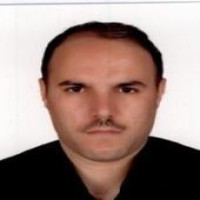

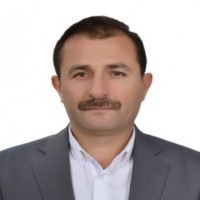


MEHMET ŞAHİN YAVUZER, 1985’te Van’da doğdu. İlk ve ortaokulu Muradiye ilçesinde tamamladıktan sonra lise öğrenimini öğretmen lisesinde bitirdi. 2006 yılında Yüzüncü Yıl Üniversitesi Eğitim Fakültesi Türkçe Öğretmenliği Bölümünden mezun oldu. 2010’da yüksek lisansını, Atatürk Üniversitesinde başladığı doktorasını 2019’da Van Yüzüncü Yıl Üniversitesinde tamamladı. Milli Eğitim Bakanlığına bağlı çeşitli okullarda öğretmenlik ve idarecilik görevlerini yerine getirdi. Bilimsel olarak Türk İslam Edebiyatı, Çağdaş Eleştiri Kuramları, roman, şiir, tiyatro, gazete, dergi, türleri üzerine çalışmalar yaptı. 2020 yılında Türk İslam Edebiyatı Anabilim dalında Dr. Öğr. Üyesi olarak göreve başladı. Halen aynı anabilim dalında görevini sürdürmektedir.
Merve Bekiryazıcı is an assistant professor in the Department of English Language and Literature at Recep Tayyip Erdogan University/Turkey. She received her MA degree in Victorian Literature from the University of Liverpool/UK and completed her PhD at Ataturk University/Turkey. Her research interests include nineteenth-century literature, Neo-Victorian literature and posthumanism.
Karşılaştırmalı Edebiyat Bilimi
Şiir
Çağdaş Türk Romanı
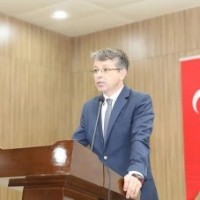
01.01.1976 yılında Eskişehir’in İnönü ilçesinde dünyaya geldi. İlk ve orta öğrenimini İnönü’de tamamladı. İstanbul Üniversitesi Edebiyat Fakültesi Türk Dili ve Edebiyatı Bölümünden dereceyle mezun oldu (1996). Aynı Üniversitenin Sosyal Bilimler Enstitüsünde Yüksek lisans yaptı (1999). Prizrenli Şem’i’nin Divanı ve İncelenmesi adlı teziyle Marmara Üniversitesi Türkiyat Araştırmaları Enstitüsünde “Doktor” oldu (2005). İstanbul Üniversitesi Edebiyat Fakültesi Türk Dili ve Edebiyatı Bölümünde “Yardımcı Doçent” kadrosuna atandı (2009). Viyana Üniversitesinde dersler verdi (2010). Manchester Üniversitesinin davetlisi olarak İngiltere’de bulundu (2011). İstanbul Üniversitesi’nde “Doçent” unvanını aldı (2012). Iğdır Üniversitesine geçti (2018) ve 2019 yılında “Profesör” oldu. Halen Iğdır Üniversitesi Fen Edebiyat Fakültesi Türk Dili ve Edebiyatı Bölümünde öğretim üyesi olarak görev yapmaktadır. Rektör Yardımcılığı, Lisansüstü Eğitim Enstitüsü Müdürlüğü, Öğrenci Dekanlığı gibi idari görevlerde bulunmuş olup halen Fen Edebiyat Fakültesi Dekan Yardımcılığı, Türk Dili ve Edebiyatı Bölümü Başkanlığı, Türkçe Öğretimi Uygulama ve Araştırma Merkezi (TÖMER) Müdürlüğü görevlerini yürütmektedir.
Klasik Türk Edebiyatı genel alanı içinde özellikle “Türk Kaside Edebiyatı”, “Şiir Mecmuaları”, “Klasik Edebiyat - Tarih Müşterekleri” gibi konulara dair araştırmaları devam etmektedir. Dünyanın çeşitli şehirlerinde alanıyla ilgili araştırmalar yapmış, uluslararası kongrelere katılmıştır. Ulusal ve uluslararası dergilerde çok sayıda bilimsel makalesi yayımlanmıştır. İstanbul Üniversitesi Rektörlüğü tarafından verilen bilime katkı ödülü sahibidir (2014). İhtifalci Mehmed Ziya Bey’in Yenikapı Mevlevihanesi, Prizrenli Şem’i Divanı, Mecmua-i Kasaid-i Türkiyye, Fevrî: Ahlâk-ı Mehmed Paşa (Şairin Gözüyle Bir Devlet Adamı Portresi), Mahremi’nin Belgrad Fethine Kasidesi Ya da Kanuni Methiyesi, Divan Edebiyatından Gazel Şerhleri ve Gazânâme: İslamiyetin İlk Yıllarına Dair Muhtasar Bir Gaza Tarihi kitaplarından bazılarıdır. Evli ve iki kız babası olup İngilizce bilmektedir.
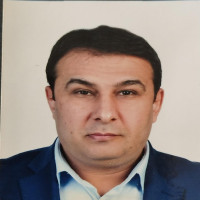


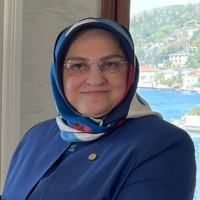
CURRICULUM VITAE
Prof. Dr. Vildan Coşkun was born in Istanbul. She graduated first in her class from Zeytinburnu Imam Hatip High School in 1987 and enrolled in the Department of Turkish Language and Literature at Boğaziçi University the same year, graduating with honors in 1992.
Between 1992 and 1993, she worked as an English teacher at the Ministry of National Education. In 1993, she won a scholarship for master’s and doctoral studies at the Center for Islamic Studies (ISAM), where she also served as a researcher. She completed her master’s degree at the Istanbul University Social Sciences Institute between 1992 and 1994. In 1994–1995, she studied academic English at the University of Pennsylvania (USA) and worked on translations from Ottoman Turkish to English.
She earned her PhD at Istanbul University Social Sciences Institute between 1994 and 2000, spending part of her doctoral research at Harvard University Houghton Library. During this period, she also worked part-time at the Middle East Section of Harvard Law School Library and at the Aga Khan Library Visual Collection.
In 2000, she became a researcher at ISAM and an author for the TDV Encyclopedia of Islam. Between 2002 and 2004, she pursued postdoctoral research on Ottoman Literature and Architecture at the Aga Khan Program, Harvard University. From 2004 to 2010, she continued her work as a researcher and TDV Encyclopedia author at ISAM. In 2010, she served as a part-time Turkish lecturer at Istanbul Sabahattin Zaim University, contributing to the establishment of TÖMER and teaching courses. She became an associate professor in 2013, founded the Department of Turkish Language Teaching at the same university, and served as its chair for two years. She also taught courses in Children’s Literature. Between 2012 and 2015, she was a member of YADOT (Association for Teaching Turkish to Foreigners).
Since 2015, she has been a professor of Classical Turkish Literature at the Department of Turkish Language and Literature, Faculty of Arts and Sciences, Sakarya University. She also serves as Advisor to the Rector at Düzce University.
Her academic work includes four books, numerous articles (two in English), encyclopedia entries (some in English), and about ten translations (Turkish-English). She has participated in and led projects supported by TÜBİTAK, Sakarya University, and Boğaziçi University, and has conducted research and academic activities abroad through Erasmus and other programs. She has conducted academic work in the USA, France, Macedonia, Bosnia and Herzegovina, and Jordan, and visited multiple cities in Turkey for academic purposes, including Ankara, Erzurum, Siirt, Batman, Tokat, Mardin, and Düzce.
Languages: Ottoman Turkish, English, Arabic, Persian (intermediate), French (basic)
Personal: Mother of two children.
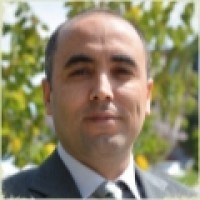
Aim & Scope
International Journal of Filologia (IJOF); It aims to present qualified scientific studies on Turkish language, culture and literature to the service of researchers according to the relevant fields and to make a contribution to the scientific and literary field, which is developing and thus updated day by day. In this context, we hope that our journal will serve as a bridge to promote our cultural treasure from the past to the present in the international community.
International Journal of Filologia (IJOF), an international peer-reviewed, scientific journal, is published twice a year, in June and December, and can also publish special issues as needed. International Journal of Filologia (IJOF),
Old Turkish Language
New Turkish Language
Old Turkish Literature
New Turkish Literature
Turkish Folk Literature
Turkish Islamic Literature
Contemporary Turkish Dialects
Turkish Language Teaching
Teaching Turkish to Foreigners
Turkish Folklore Researches
Comparative Literature
Linguistics
It includes all kinds of academic studies, compilations, reviews and book introductions that directly or indirectly concern the field of Turkology, language and literature.
Author Guidelines
Ethical Principles and Publication Policy
1. General Principles
- Articles that are decided to be published are queued by making the necessary arrangements and wait to be published. Authors are informed about the issue in which the article will be published.
- An author whose article is published in the International Journal of Filologia (IJOF) will be able to publish another article in our Journal at the earliest in the third issue following the publication of the article, except for special issues. For example, an author whose article was published in the March 2021 issue of our Journal will be able to appear in our Journal with another article in the October 2022 issue at the earliest. In addition, an author should not upload another article to the system before the process related to his/her ongoing article is completed. In such a case, the other article or articles uploaded will be rejected.
- Depending on the intensity of the articles received in an issue, quota limitations are applied to faculty members from the same university or authors from the same institution.
- In order for an article to be evaluated and published in the International Journal of Filologia (IJOF), the editors must first decide on the suitability of the article for the journal. The editors may directly reject an article that they deem inappropriate or inadequate in terms of form or content without passing it through the referee process. The fact that an article receives a positive report from the referees does not mean that the article will definitely be published. The editor, editorial board or field editor may decide not to publish an article even if the referees report favourably. However, in such a case, the editor is obliged to inform the author of the reason.
- In each issue of our journal, a quota is applied for articles produced from graduate theses and publication reviews / book reviews, taking into account the number of articles in that issue.
- In case of publication of their articles, the author(s) of the journal undertake that the ethical rules are followed and that the ethical rules are observed and that all responsibility in this regard lies with the author(s).
- As of 1 January 2024, Correction Articles will not be published in our journal. Therefore, authors should check their articles meticulously after publication and submit any minor correction requests to the editor of the journal within three (3) days after publication.
2. Open Access Policy
International Journal of Filologia is an open access journal. Open access means that all content is freely available at no cost to the user or his/her institution. Without prior permission of the publisher or author, users may download, copy, print, search, link to, or use the full text of articles for reading, research, or other lawful purposes.
3. Fee Policy
International Journal of Filologia started its publication life as a free of charge ‘International Refereed Journal’ in 2018. No fee is charged for the articles submitted for publication and published in our journal.
4. Frequency of Publication
The journal is published online twice a year, in June and December. Special issues may also be published if the Editorial Board deems appropriate.
- It is recommended that articles submitted to our journal should not exceed 12,000 words and 40 pages. However, in cases where this number of words and pages must be exceeded, the journal editorial office must be notified in advance.
- If the manuscripts submitted to the journal are supported by any institution or organisation, this institution or organisation should be indicated in the manuscript.
- Studies that have been previously presented in national or international congresses or symposiums and whose abstracts have been published should be sent by indicating these qualifications.
- In case of quotation from published articles, it is obligatory to indicate the source.
- Manuscripts submitted for publication in the journal will not be returned whether they are published or not.
- More than one article by the same author cannot be published in one issue.
- The author(s) undertakes that there are no criminal elements or illegal expressions in the article, that no illegal materials and methods were used during the research, and that all necessary permissions (if any) related to the study have been obtained.
5. Scope / Scope
The journal includes academic studies, reviews and book introductions that will contribute to the field of language and literature, especially Old Turkish Language, New Turkish Language, Old Turkish Literature, New Turkish Literature, Turkish Folk Literature, Turkish Islamic Literature, Contemporary Turkish Dialects, Turkish Teaching, Teaching Turkish to Foreigners, Turkish Folklore Studies, Comparative Literature, Linguistics, Turkology.
6. Publication Language and Spelling
- Although the publication language of the journal is Turkish, the journal also includes studies written in different languages. The abstract of the studies written in a foreign language should be in Turkish.
- It is obligatory to comply with the rules of grammar (spelling, punctuation, clarity, comprehensibility, etc.) to the maximum extent in the studies submitted to the journal. The author is fully responsible for problems and criticisms arising from spelling and punctuation. In terms of spelling and punctuation, the spelling guide of the Turkish Language Association should be taken as basis, except in cases where the study or subject is mandatory.
7. Journal Plagiarism Policy
A similarity report should be uploaded to the system with the manuscripts submitted to our journal. The iThenticate programme should preferably be used for plagiarism detection. Through this system, it is confirmed that the articles have not been published anywhere before or do not contain any plagiarism. In cases where the plagiarism report is high due to special circumstances (derivation from thesis, etc.), this situation should be notified to the journal editor in advance, and the article should be uploaded to the system if the journal editor approves. Apart from this, articles with a similarity rate of more than 20% are considered plagiarised and rejected.
Price Policy
International Journal of Filologia started its publication life as a free of charge ‘International Refereed Journal’ in 2018. No fee is charged for the articles sent to our journal for publication and published in our journal.
Indexes
Journal Boards
Editör / Editor
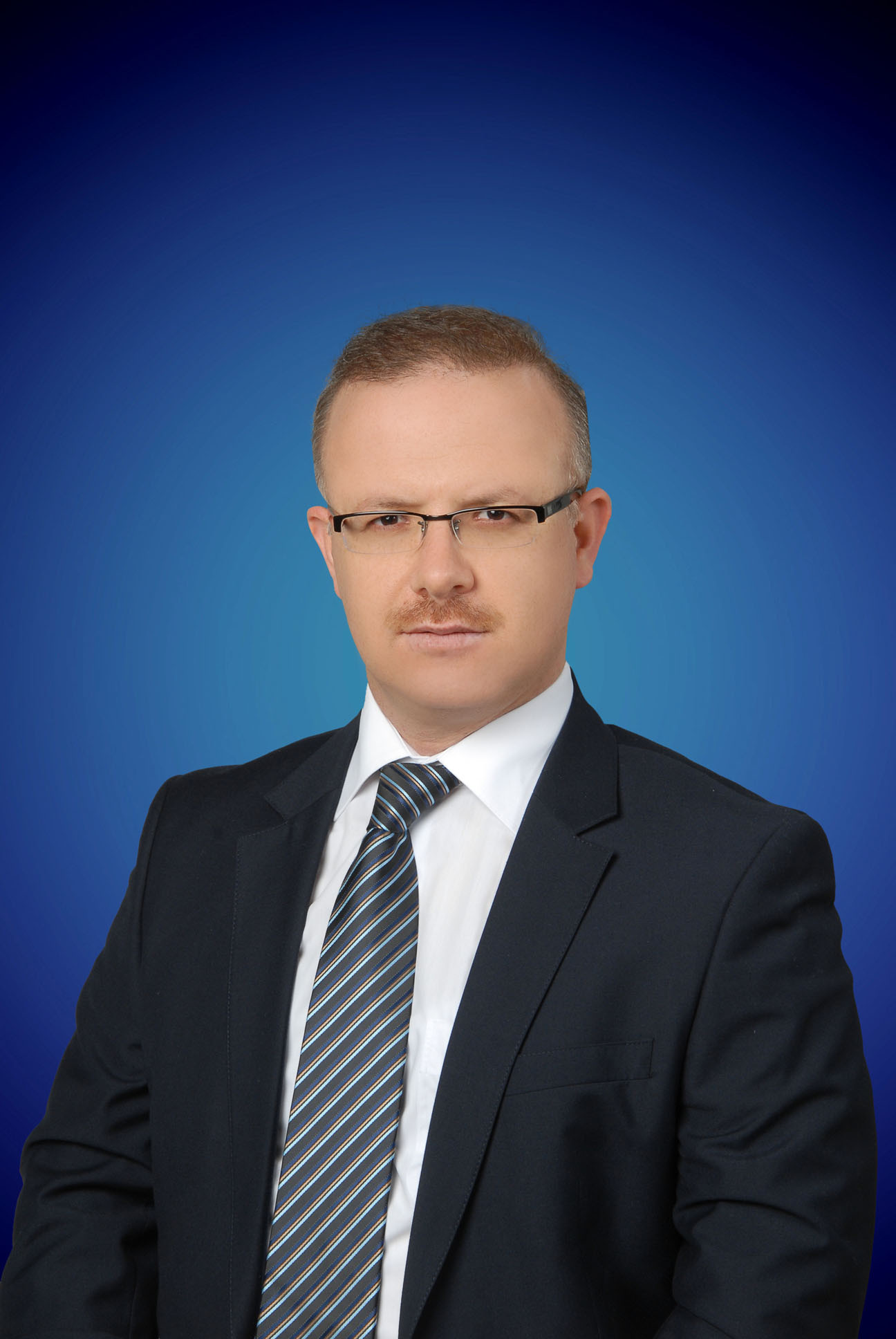
Editör Kurulu (Alan Editörleri) / Field Editors
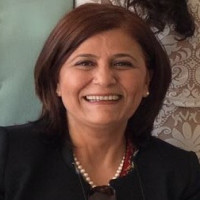
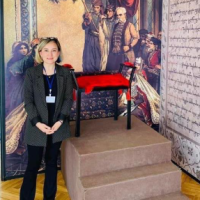


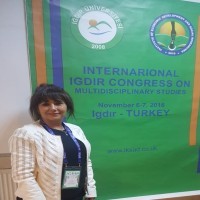
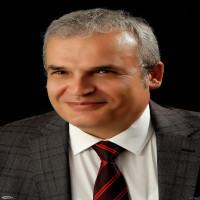

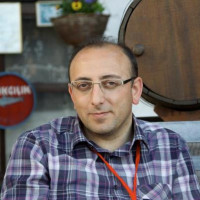

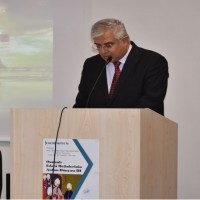
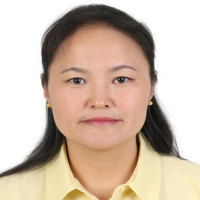
Yayın Kurulu / Editorial Board

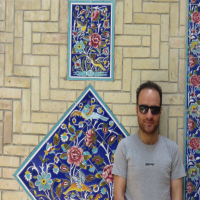
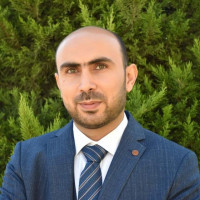
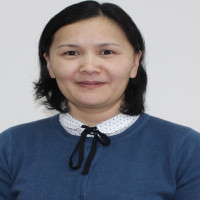
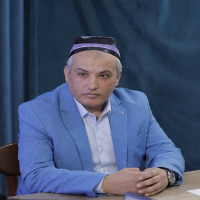
Yayın Danışma Kurulu / Board of Editorial Advisor
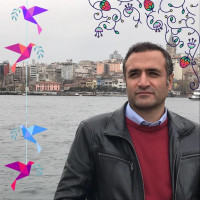
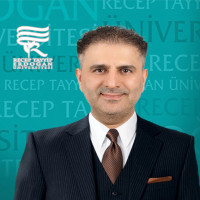






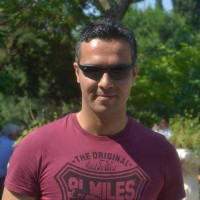



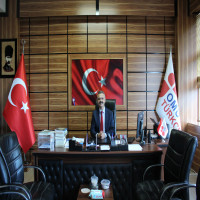
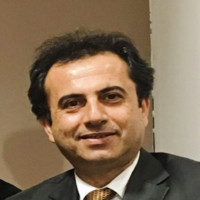
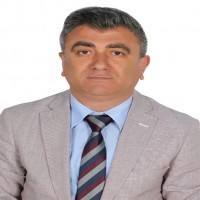
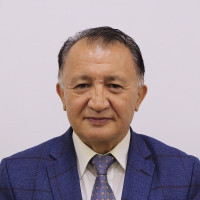
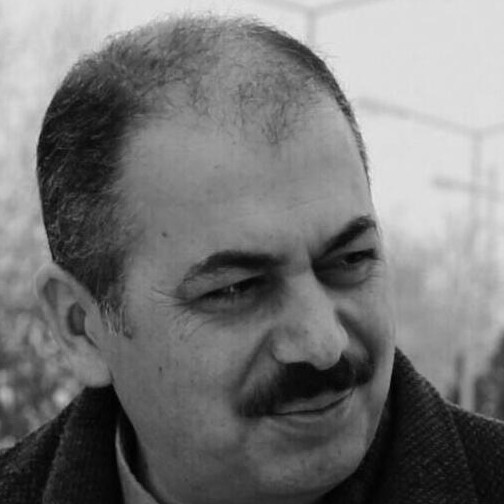
Dil Editörleri / Editors of Language

International Journal of Filologia (IJOF), which operates within ULAKBIM-DERGİPARK, is an International Refereed, Scientific Journal published in the field of Philology.











